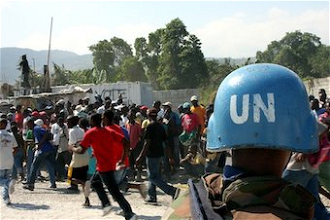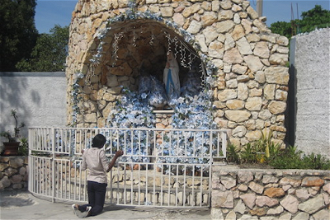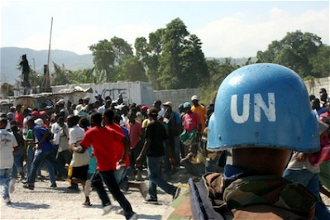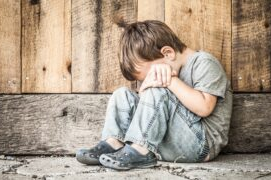Haiti: cholera kills more than 200, thousands sick
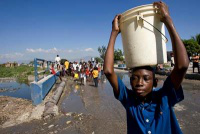
Boy carries water collected from broken pipe near JRS Bono Centre; Jimani. Pic: JRS
An outbreak of cholera in Haiti has claimed the lives of more than 200 people. Thousands more are ill with the disease, amidst fears that it could soon spread to the 1,000 camps in Port au Prince and other cities where many thousands have lived in very crowded, unsanitary conditions since the country was devastated by the earthquake on 12 January.
Government officials and international aid workers have asked people to remain calm but vigilant and be sure to wash their hands with soap and stay out of rivers.
"We are very, very worried,'' said Claude Surena, a physician with Haiti's health ministry.
The Ministry of Health has declared the worst-affected areas were the towns of Drouin, Marchand Dessalines and areas around St Marc, a port city 55 miles north of the capital.
In a matter of hours, mothers had lost children, husbands had lost wives and entire communities were grieving.
Cholera is an acute diarrheal illness that is spread by drinking contaminated water. Only about 10 percent of those who drink water contaminated by the cholera bacteria will fall ill; however, the infection can be fatal particularly among young children, the elderly, the malnourished and persons with decreased immune function. Those ill with cholera develop severe diarrhea that is rapidly dehydrating. Without speedy treatment, patients may go into shock and die of dehydration. The mainstay of treatment for cholera is fluid and salt replacement-generally by oral rehydration solution-a standard combination of salt, sugar and water. Intravenous fluids and antibiotics may also be needed.
Cholera is a disease of poverty. Epidemics are caused by a lack of access to safe, clean water. Typically, the world's poorest people obtain drinking water from a river or stream; in the absence of pit latrines or public sewage systems, the same river is used for defecation allowing human waste to mix with the water used for drinking. While boiling water will kill the cholera bacteria, the fuel to boil water costs money and as wood-based charcoal is the main source of cooking fuel in Haiti use of charcoal is also related to the continued deforestation of the country. Cholera can also be transmitted if a person eats food contaminated with the cholera bacterium.
While Haiti has not had a documented case of cholera since the 1960s, the conditions in the lower Artibonite placed the region at high-risk for epidemics of cholera and other water-borne diseases even before the 12 January earthquake. In 2008, Partners In Health working with partners at the Robert Kennedy Center for Human Rights released a report of the denial of water security as a basic right in Haiti. In 2000, a set of loans from the Inter American Development Bank to the government of Haiti for water, sanitation and health were blocked for political reasons, PIH report. The city of St Marc (population 220,000) and region of the lower Artibonite (population 600,000) were among the areas slated for upgrading of the public water supply. This project was delayed more than a decade and has not yet been completed.
Source: FamVin/PIH



